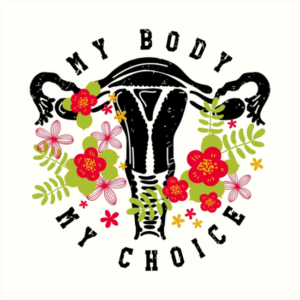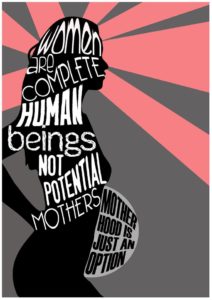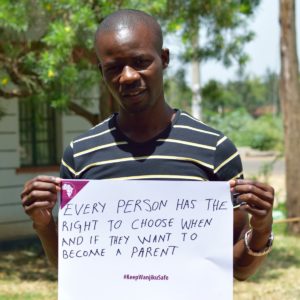Last month the Government of Rwanda published a ministerial order or guidelines determining conditions to be satisfied for a medical doctor to perform an abortion. These guidelines were released following the revision of the Penal Code in 2018, which changed the conditions to obtain medical abortion from the decision to abort granted by the court to simply the authorization of a medical doctor.
Rwanda’s laws on abortion align with the Protocol to the African Charter on Human and People’s Rights on the Rights of Women in Africa of 2003, also known as the Maputo Protocol of which Rwanda and majority of African countries have ratified. The protocol has been instrumental in the protection and promotion of women’s rights on the continent. Article 14, section (2) (c) calls states to protect women’s reproductive rights by authorizing medical abortion only in the following cases: sexual assault, rape, incest and when the pregnancy endangers the physical or mental wellbeing or life of the mother or foetus.
 The new ministerial order goes further to allow for performing abortion when the pregnant person is a child with written consent from the child’s legal representative or guardian. While this was cause for celebration, particularly among pro-women’s rights, pro-abortion activists and feminists as it is a step towards the granting of full reproductive rights for women, one cannot help but wonder whether this step will make significant changes in the lived realities of women and girls in Rwanda.
The new ministerial order goes further to allow for performing abortion when the pregnant person is a child with written consent from the child’s legal representative or guardian. While this was cause for celebration, particularly among pro-women’s rights, pro-abortion activists and feminists as it is a step towards the granting of full reproductive rights for women, one cannot help but wonder whether this step will make significant changes in the lived realities of women and girls in Rwanda.
First, reporting rape and incest are still frown upon by society; women and girls are still blamed and shamed for being sexually assaulted, and so investigating these cases is harder and more complicated. Secondly, access to safe and legal abortion without restrictions is still a dream, and reality is frightening. Many women and girls who get pregnant as a result of having consensual sex with no desire to have a child at that moment cannot obtain it when abortion is permissible under limited conditions.
As a result, women and girls still opt for clandestine methods, most of the time very dangerous as they might be performed by unqualified people or by doctors who do not have all the necessary medical equipment at hand. Socio-economic factors such as poverty, dependence and the lack of appropriate information are also contributing factors that push women to unsafe abortion.
In Rwanda it is often said that women with financial means can travel to Kampala or Nairobi to obtain an abortion while the poor and vulnerable use backdoor means to obtain it.
Studies show that when abortion is criminalised, women and girls will risk arrest and harm to their health in order to terminate an unplanned or unwanted pregnancy. Many women and girls have been unjustly incarcerated for having aborted clandestinely.
Shortly before the new ministerial order was published in Rwanda, 367 women and girls were pardoned by the President after having been convicted of abortion and infanticide. This is in addition to 62 women pardoned in 2016. While this is great, no woman or girl should be jailed in the first place for exercising her right to reproductive health!

Outlawing full access to legal and safe abortion not only violates human rights, but it also infringes on the dignity and bodily autonomy of women and girls. It is also a state-sponsored machinery to force women to have children they do not want or have not planned for.
When a woman does not want to be pregnant, nothing will stop her.
Contrary to popular and backward thinking, such restrictive laws do not reduce abortion rates, rather they force women to take drastic and often life-threatening choices to end the pregnancy. During 2010–2014 period, an estimated 8.2 million induced abortions occurred each year in Africa. This number represented an increase from 4.6 million annually during 1990–1994, mainly because of an increase in the number of women of reproductive age. An estimated 93% of women of reproductive age in Africa live in countries with restrictive abortion laws according to Guttmacher Institute. And this correlates with Africa having the highest number of abortion-related deaths. In 2014, at least 9% of maternal deaths (or 16,000 deaths) in Africa were from unsafe abortion.

https://twitter.com/NAYAKenya
Exceptions for women to have access to abortion only in restrictive cases such as rape and forced marriage sends a message that women and girls’ bodies need to be violated for them to access a service they are entitled to in the first place. It is unfortunate that today, state machinery driven by conservative politicians, both female and male, continue to use cultural and religious propaganda to deny women and girls their rights.
The truth is abortion is not a sensitive or controversial topic as it is widely believed, rather the policing of women and girls bodies is what is widely accepted as a norm.
We live in a world that has normalized a culture that oppresses women and girls and devalues their agency. The issue is not whether women and girls cannot decide on their own, the issue is that our misogynistic lawmakers believe women and girls sexuality should be controlled and policed. As someone once said “to use a woman’s body, against her free will and choice, as a receptacle for unwanted pregnancy has got to be seen as a kind of ‘legalized rape’ that must be as morally repugnant as ‘foeticide’ to those perpetrating it.”
As of 2019, there are 26 countries in the world where abortion is illegal regardless of the circumstances, and 9 are in Africa. Access to contraception remains a challenge, with the biggest unmet needs among women living in remote areas and adolescent girls. The emergency contraceptive, which is available over the counter in Rwanda, costs around 10,000 Rwandan francs (around $11)! In the past 2 years alone, more than 20,000 cases of teenage pregnancy were reported in various parts of Rwanda. While becoming pregnant is not a warrant for dropping out school, many girls still face stigma and discrimination from their family and friends for becoming pregnant outside marriage.
No woman has an abortion for fun; but where laws are restrictive, where services are not available and accessible, women and girls’ lives will continue to be endangered.
Various research on unsafe abortion in Africa also shatter stereotypes on who procures/needs abortion services as often those hiding behind fake moralities to deny women their rights point to ‘loose morals’. Between 2010-2014, the Africa regional abortion rate was roughly 26 per 1,000 for married women and 36 per 1,000 for unmarried women. Abortion is therefore a service that any woman of reproductive age might need at one point.
While I want to celebrate the achievements so far, I am concerned with the fact that women’s rights are treated like a basket of rights controlled by our states, and they get to decide which rights they grant to women or which rights to deny.
Women’s bodies are not a battleground for politics; the denial of women’s sexual and reproductive rights including the right to safe and legal abortion is the denial of women to control their own bodies and their ability to be in control of their lives. Therefore there is a need to normalize conversation both in public and private spaces around sexual and reproductive health including the right to legal and safe abortion as fundamental to the wellbeing of women and girls.
Olive is a feminist and PanAfrikanist with over 10 years of experience in policy and advocacy work for women’s rights in the Great Lakes region. She works and lives in Kigali, Rwanda. You can connect with her on Twitter @uwaolive where she regularly talks about dismantling patriarchy.

Dear Ms. Olive,
I appreciate the advocacy along with the great work you are implementing in favor of women. Good luck!
Murakoze,
Feza